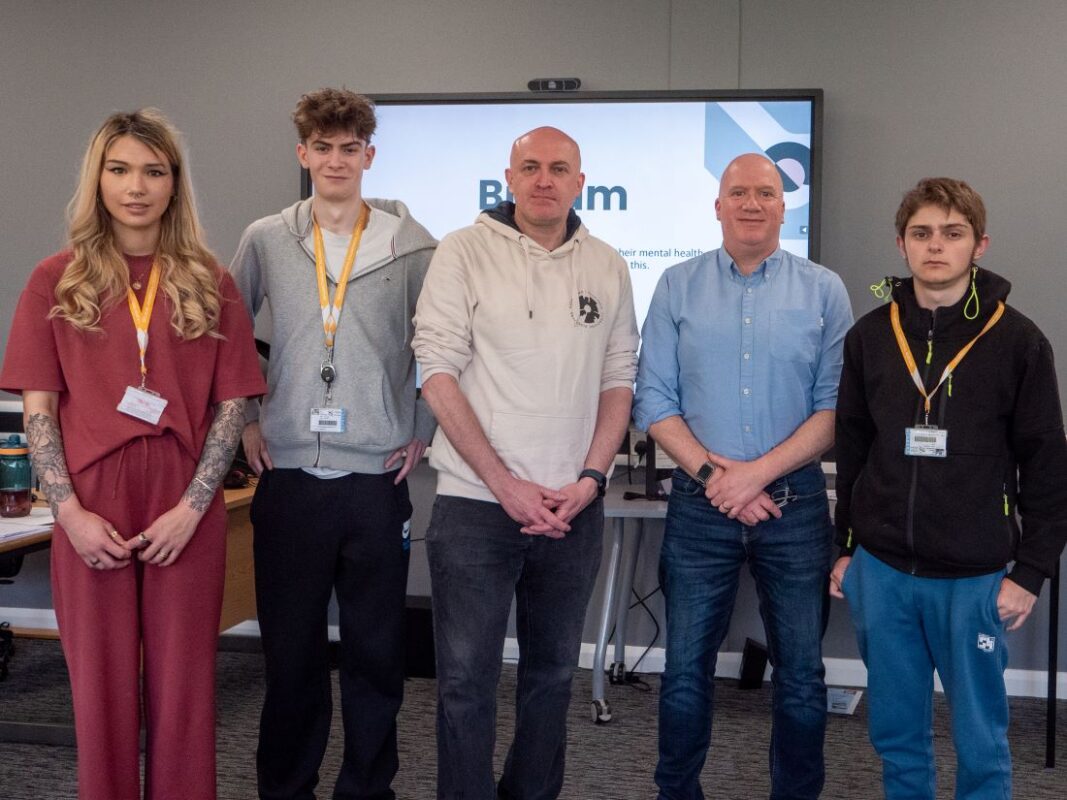Are improvements in meta-skills the answer to bring back our isolated and disengaged young people?

Meta-skills, also known as ‘core skills,’ such as critical thinking, adaptability, and emotional intelligence are more important than ever in the modern economy. However there is a concerning trend of young people lacking these essential skills which impacts their success in education and employment. What are the factors contributing to this deficit, do educational systems prioritise standardised testing over core life skills? What is the impact of technology on skill development? How do we better prepare young people for the demands of the evolving job market and ensure their success in the workforce?
I know what I am about to say feels like my grandfather talking, suggesting that ‘the youth’ do not behave like my generation, but I make no apology for highlighting the crisis we are facing.
Many young people seem to be lacking these essential meta-skills
The modern economy is in a state of rapid evolution, demanding not only technical expertise but also a unique set of meta-skills, often referred to as ‘core skills,’ that go beyond academic or vocational qualifications. These skills; critical thinking, problem-solving, adaptability, communication, and emotional intelligence—are increasingly becoming the pillars of success in both professional and personal life. However, a concerning trend has emerged: many young people seem to be lacking these essential meta-skills. It is expected that this deficit is contributing to a rise in the number of NEETs (young people Not in Education, Employment, or Training) and creating a ripple effect that stifles broader economic activity.
Meta-skills, also referred to as ‘core skills,’ represent the foundational abilities that allow individuals to navigate complex and unpredictable environments, like work. They are the cognitive, emotional, and social tools that help people process information, make decisions, communicate effectively, and collaborate in teams. Some of the most critical meta-skills include:
1. Critical thinking – The ability to analyse situations, challenge assumptions, and solve problems creatively.
2. Adaptability – Being flexible in the face of change and uncertainty, adjusting quickly to new conditions.
3. Emotional intelligence – Recognising and managing one’s own emotions, as well as understanding and influencing the emotions of others.
4. Communication – Articulating ideas clearly and persuasively, both in writing and speech.
5. Self-awareness and self-management – The ability to assess one’s own strengths, weaknesses, and areas for development while managing time, goals, and tasks efficiently.
6. Collaboration – Working effectively with others, building relationships, and being a contributing team member.
7. Resilience – The ability to recover from setbacks, overcome obstacles, and persevere through challenges.
‘Soft Skills,’ are anything but soft when it comes to their importance in career success
These skills, while often described as ‘soft skills,’ are anything but soft when it comes to their importance in career success. They represent the backbone of modern work environments, where the ability to adapt to new technologies, collaborate with diverse teams, and navigate complex, global challenges is paramount. Yet, there is increasing evidence that young people are struggling to develop these essential abilities.
There are several factors contributing to the growing deficit in meta-skills among young people. Some of the most prominent reasons include the following:
Many educational systems around the world prioritise repetitive learning, memorisation, and standardised testing, leaving little room for the development of core life skills. While academic achievements are important, they do not necessarily translate into the ability to solve real-world problems or collaborate effectively in the workplace. The emphasis on grades and exam results often comes at the expense of fostering critical thinking, creativity, and interpersonal communication—skills that are essential in nearly every modern profession.
In a rapidly changing job market, where the specific technical skills learned in school can become outdated within years, the ability to think critically and adapt to new situations is far more valuable than mastering a static body of knowledge. Unfortunately, many educational systems are lagging in updating their curriculums to reflect this reality, leaving students ill-prepared for the workforce.
Technology has altered the way young people develop core life skills
Technology, while providing incredible opportunities, has also altered the way young people develop core life skills. Social media, instant gratification, and the sheer volume of information available online can undermine the development of deeper thinking and focus. With so much emphasis on online communication, real-time feedback, and short bursts of information, young people are not learning how to engage in deep conversations, manage emotions, or problem-solve in a sustained manner.
Moreover, the isolation that technology sometimes fosters can stifle the development of social and collaborative skills. Remote work, gaming, and digital socialising have their place but do not offer the same depth of personal interaction that face-to-face communication and teamwork can provide. As a result, many young people lack the nuanced interpersonal skills needed to succeed in work environments that demand high emotional intelligence and collaboration.
The meta-skills deficit is particularly pronounced among young people from disadvantaged backgrounds
The meta-skills deficit is particularly pronounced among young people from disadvantaged backgrounds. Socioeconomic inequalities limit access to extracurricular activities, internships, and mentorship opportunities—all of which are essential for developing skills such as leadership, teamwork, and communication. While wealthier young people may have the chance to travel, engage in leadership programs, or participate in enriching after-school activities, their less-advantaged peers are often left behind.
The COVID-19 pandemic has exacerbated this divide. As schools shifted to online learning, many young people from low-income households faced digital barriers—lack of access to technology, internet connectivity, or a quiet space to study—that hindered their ability to engage fully with their education. The resulting learning loss is likely to have long-term consequences, including diminished opportunities to develop core life skills.
Modern parenting styles and societal pressures may also play a role in stunting the development of meta-skills. Overprotective parenting, often referred to as “helicopter parenting,” can prevent children from developing independence, resilience, and problem-solving skills. When young people are shielded from failure or challenges, they miss opportunities to learn how to navigate setbacks and adapt to new circumstances—essential skills in both life and work.
Additionally, societal pressures to achieve success quickly can push young people to focus on external achievements (grades, awards, or job titles) rather than the internal skills that lead to long-term success. This narrow definition of success can leave young people ill-equipped to cope with the uncertainties and complexities of modern life.
A Lack of meta-skills among young people is contributing to a troubling rise in the number of NEETs
The lack of meta-skills among young people is contributing to a troubling rise in the number of NEETs—those Not in Education, Employment, or Training. In many countries, this demographic has grown steadily over the past decade, with the global economic instability brought about by the COVID-19 pandemic further exacerbating the issue. But how exactly is the meta-skills deficit linked to the NEET crisis, and what are the broader implications for the economy?
Employers increasingly prioritise candidates with strong meta-skills, as technical abilities alone are often not enough to succeed in today’s dynamic workplace. A lack of core skills such as communication, problem-solving, and teamwork can make it difficult for young people to secure and retain jobs. In interviews and on the job, individuals who lack these skills may struggle to articulate their thoughts, manage relationships with colleagues, or adapt to changing expectations—all of which can lead to job instability or long-term unemployment.
For young people who are unable to enter the workforce or maintain employment, the likelihood of becoming NEET increases significantly. Once individuals fall into this category, it can be difficult to break the cycle, as they lack the experience and skills that employers seek.
Unemployment and economic inactivity are closely linked to mental health issues such as anxiety, depression, and low self-esteem. The inability to find work or engage in meaningful activities can lead to feelings of worthlessness and isolation, further eroding young people’s confidence in their abilities. Without the meta-skills needed to cope with these emotional challenges, many NEETs become trapped in a cycle of inactivity and poor mental health, which further reduces their ability to engage in education, employment, or training opportunities.
This cycle not only affects the individuals involved but also has broader social and economic consequences. The loss of potential productivity, coupled with the costs of mental health care and social services, places an additional burden on economies that are already grappling with rising unemployment and stagnant growth.
Rising number of NEETs is not just a social issue—it is an economic crisis
The rising number of NEETs is not just a social issue—it is an economic crisis. When large segments of the population are disengaged from the workforce, economic growth slows. Young people who lack the skills to participate in the labour market contribute less to economic activity, both as workers and consumers. This, in turn, leads to lower tax revenues, reduced consumer spending, and higher demands on welfare systems.
Moreover, the meta-skills deficit can hinder innovation and productivity in the long term. Economies that fail to cultivate a workforce equipped with the core skills needed to adapt to new technologies, collaborate on complex problems, and lead in uncertain environments will struggle to remain competitive in the global marketplace.
So what can be done?
So what can be done? To reverse the trend of rising NEET numbers and economic inactivity, it is essential to address the root causes of the meta-skills deficit among young people. Governments, educational institutions, and employers all have a role to play in fostering the development of core skills that will enable young people to thrive in a rapidly changing world.
Educational systems need to prioritise the development of meta-skills alongside academic and technical knowledge. This could involve:
- Incorporating more project-based learning, where students are required to solve real-world problems in collaborative settings.
- Offering courses in emotional intelligence, communication, and critical thinking as part of the standard curriculum, leading to what we would call ‘Employability Skills’.
- Reducing the emphasis on standardised testing and repetitive learning in favour of assessments that measure a broader range of skills.
Employers can play a key role in developing meta-skills by providing training programs that focus on soft skills development. Additionally, mentorship programs can help young people learn from more experienced professionals, gaining the emotional intelligence, resilience, and adaptability needed to succeed in the workplace.
Socioeconomic inequalities must be addressed to ensure that all young people have access to the opportunities they need to develop meta-skills. Governments, NGOs, and community organisations can work together to provide resources for disadvantaged youth, such as:
- Mentorship and internship programs: Offering hands-on experience and guidance from professionals can help young people develop practical skills that go beyond academic learning.
- After-school programs: These can provide opportunities for students to engage in extracurricular activities that foster collaboration, leadership, and communication, especially in areas where schools have limited resources.
- Access to technology and learning resources: Ensuring that every student, regardless of their background, has access to the tools they need to succeed, such as computers, internet connectivity, and a safe environment for learning, is critical to closing the gap in skills development.
Parents and communities also play a significant role in developing young people’s meta-skills. By encouraging independence, problem-solving, and resilience from an early age, parents can help foster a mindset that embraces challenges and learning. Community organisations can offer programs that teach both parents and youth about emotional intelligence, communication, and conflict resolution, empowering families to support each other in their development.
Furthermore, shifting societal pressures away from a narrow focus on academic success and material achievements can help young people broaden their definitions of success. This cultural shift can encourage young people to focus on personal growth, emotional resilience, and relationship-building as equally important metrics for success in life.
Given the clear connection between unemployment, mental health, and the development of meta-skills, it’s crucial to promote mental health support for young people, particularly those who are at risk of becoming NEET. This includes providing:
- Access to counselling and mental health services in schools, universities, and communities to help young people manage stress, anxiety, and emotional challenges.
- Resilience training in schools that focuses on coping strategies, mindfulness, and emotional regulation to build young people’s capacity to handle setbacks and challenges.
- Programs that tackle social isolation, particularly for those who may be more at risk of disengagement, ensuring that young people have social support networks that keep them connected to education, training, or employment pathways.
Technology plays a dual role in the development of meta-skills. On one hand, it can hinder the growth of essential skills such as deep focus, in-person communication, and emotional intelligence. On the other hand, when leveraged properly, technology can also be a powerful tool for fostering these very skills.
As mentioned earlier, the prevalence of social media and digital distractions can impede young people’s ability to develop sustained focus, face-to-face communication skills, and emotional awareness. The nature of digital interactions—brief, fragmented, and often lacking depth—means that young people are not practising the kind of nuanced, empathetic communication that is essential for building emotional intelligence and strong interpersonal relationships.
Moreover, the culture of instant gratification created by social media and digital entertainment can undermine the development of patience, resilience, and the ability to delay gratification—critical meta-skills for long-term success in any endeavour.
However, technology can also be part of the solution when used intentionally. For example:
- Online learning platforms can provide young people with access to courses that teach critical thinking, problem-solving, emotional intelligence, and communication. Many platforms offer courses designed to help users develop these essential skills, often for free or at a low cost.
- Virtual collaboration tools, such as Zoom, Slack, or Microsoft Teams, can help young people practice communication and teamwork in remote or global settings. Learning to collaborate virtually is increasingly important in today’s globalised workforce, where remote work and cross-border collaboration are becoming the norm.
- Gamified learning apps can help young people develop problem-solving skills, resilience, and adaptability. Platforms like Duolingo for language learning or Lumosity for cognitive training can make skill development engaging and fun, encouraging sustained learning over time.
To maximise the positive potential of technology while minimising its negative effects, a balance must be struck. This could involve:
- Educating young people on digital literacy and self-regulation, teaching them how to manage their technology use in a way that fosters productivity, focus, and meaningful connections.
- Promoting a blend of online and offline learning that includes both digital tools and face-to-face interactions, ensuring that young people develop strong communication skills and emotional intelligence through real-world experiences.
- Using technology to enhance, rather than replace, human relationships, for example, by encouraging young people to use digital tools to organise in-person meetups, collaborate on projects, or stay in touch with mentors.
The meta-skills deficit among young people is a pressing issue that has far-reaching implications for both individual well-being and the global economy. As the number of NEETs continues to rise, driven in part by the lack of these critical skills, the economic and social costs will continue to mount unless decisive action is taken.
To address this growing crisis, a multi-pronged approach is needed
To address this growing crisis, a multi-pronged approach is needed—one that involves educational reform, workplace training, mentorship, mental health support, and a balanced use of technology. By prioritising the development of meta-skills such as critical thinking, adaptability, communication, and emotional intelligence, we can equip the next generation with the tools they need to succeed in an increasingly complex and uncertain world.
For young people, the ability to navigate a rapidly changing job market, overcome personal and professional challenges, and contribute meaningfully to society will depend not just on technical expertise but on the core skills that enable them to think critically, adapt to new circumstances, and build strong relationships. Investing in the development of these meta-skills is not just an investment in the future of our youth—it is an investment in the future of our economy and society as a whole.
As we move forward, it is crucial that governments, educators, parents, and employers work together to close the meta-skills gap and ensure that every young person has the opportunity to thrive in both work and life. Only by doing so can we reverse the tide of rising NEET numbers and unlock the full potential of the next generation, paving the way for a more resilient, innovative, and prosperous global economy.
It will not be lost on anyone that knows me that I would suggest that meta or core skills could also be labelled ‘employability skills’. The Institute of Employability Professionals exists to support all employability practitioners to ‘be the best they can be’ wherever and whenever they are delivering support. I feel the employability sector as a whole has a large part to play in delivering the solutions that enable young people across the world to gain these essential skills so they can play an active part in both their local labour market, the economy and society in general.
By Scott Parkin FIEP, Group CEO, IEP











Responses